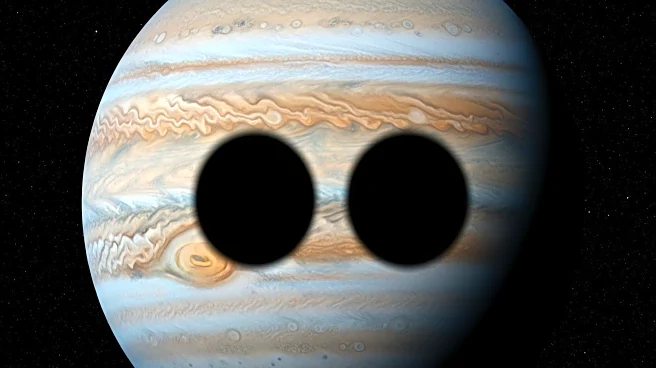What's Happening?
Elon Musk has launched Grokipedia, an AI-driven online repository intended to rival Wikipedia. The platform, developed by Musk's xAI team, went live recently, although some users reported initial access
issues. Grokipedia aims to offer a 'massive improvement over Wikipedia,' according to Musk, who has criticized Wikipedia for perceived political bias. The site currently hosts over 885,000 articles, significantly fewer than Wikipedia's 7 million-plus entries. Grokipedia's interface resembles a blend of Wikipedia and ChatGPT, featuring a search bar on a dark background. The launch is part of Musk's broader strategy to challenge mainstream platforms he views as biased.
Why It's Important?
The introduction of Grokipedia could significantly impact the landscape of online information sharing. By leveraging AI, Musk aims to provide an alternative to Wikipedia, which he has accused of liberal bias. This move could attract users seeking different perspectives, potentially reshaping how information is consumed and trusted online. However, the platform's reliance on AI-generated content raises concerns about accuracy and bias, as AI models can perpetuate errors and misinformation. The success of Grokipedia could influence other tech companies to explore AI-driven content platforms, affecting the broader tech industry and information dissemination.
What's Next?
As Grokipedia gains traction, it will likely face scrutiny over content accuracy and bias, especially given Musk's history of controversial statements. The platform's development will be closely watched by both supporters and critics. If successful, Grokipedia could prompt Wikipedia and similar platforms to innovate and address perceived biases. Additionally, regulatory bodies may examine the implications of AI-generated content on public information. Stakeholders, including educators, researchers, and policymakers, will need to assess the reliability of Grokipedia's content as it becomes more widely used.









